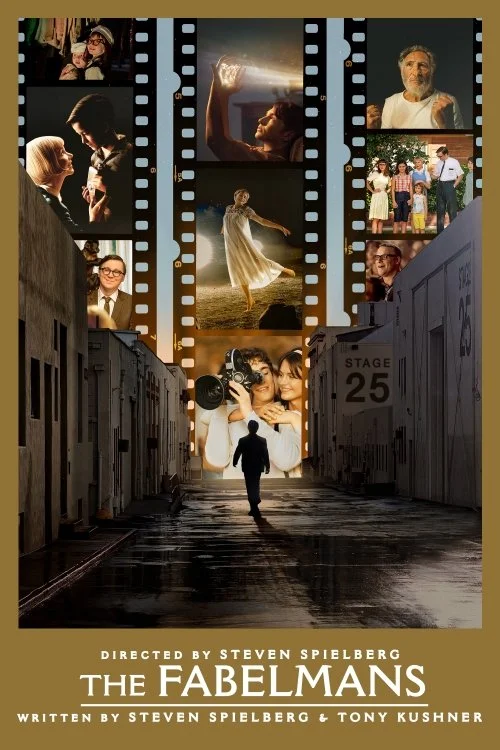"The Fabelmans" - Film Review
The Fabelmans begins in 1952 on a miraculous night: Sammy Fabelman’s (Mateo Zoryon Francis-DeFord) first trip to the cinema. His parents (Paul Dano and Michelle Williams) have taken him to see Cecil B. DeMille's The Greatest Show on Earth. This isn’t just a story about any old kid falling in love with film, it’s a semi-autobiographical recounting of Steven Spielberg coming of age during his parents’ troublesome marriage. The audience watches Sammy grow into a teenager (Gabriel LaBelle) who dreams of one day making films in Hollywood.
Universal Pictures
Between Babylon and The Fabelmans, it’s apparent that it’s quite difficult for some directors to succinctly explain their complex emotions about the art of filmmaking. Spielberg has been in the industry far longer than Damien Chazelle, but his emotions are nowhere near as conflicted. Instead, the problem likely lies with Spielberg being too close to this art form to be able to truly convey his adoration. In Jane Austen’s Emma, George Knightley says to Emma, “If I loved you less, I might be able to talk about it more.” Perhaps if Spielberg loved making movies less, he could talk about it more. The Fabelmans can’t quite convey what it is that has young Sammy so enraptured, and that’s a shame because it’s why we’re all watching this movie. We want to better understand the man whose career has shaped so many of our childhoods.
Perhaps it’s just an issue of expectations. Maybe billing The Fabelmans as an intimate look at Spielberg’s burgeoning love for film was a mistake, because the film’s real focus is on the crumbling marriage of Sammy’s parents. Even then, though, it seems Spielberg doesn’t understand who his parents were. Not entirely, anyway, and especially not his mother. Her affair, her lost career, and her vague mental illness, are all wildly underdeveloped. Just set dressing to the falling-apart marriage. Sammy’s father is an engineer and his main role in the film is to move the family from state to state. More set dressing without substance.
The trouble with deeply personal films is that the people making them can be too close to the subject to see the gaps they need to fill in for the audience. Despite the fact that Spielberg isn’t the sole writer of The Fabelmans (long-time collaborator Tony Kushner co-writes), this is the film’s fundamental issue. So many of Spielberg’s films have a fraught father-son relationship at their core, but that’s noticeably absent in The Fabelmans. Sure, Sammy’s father has no faith in the art of filmmaking and they have a few conversations about it being a hobby and not a future, but that’s not enough to explain Spielberg’s continued fascination with the dynamic. In fact, the film ends with Sammy and his father far closer than either of them are with Sammy’s mother. Spielberg can take inexplicable detours (like Sammy’s mom chasing a tornado) because he knows what he’s trying to convey, but the audience is left scratching their heads. The film plays out like hazy snippets of a life, half-baked scenes that only make sense to those closest to the subject.
The Fabelmans should feel like a memory, but the images are too crystal clear. There’s no grain, no warm hues, no softness. The film is too digital, too modern, too sterile for the emotion it’s trying to invoke in its audience.
Follow me on BlueSky, Instagram, Letterboxd, & YouTube. Check out Movies with My Dad, a new podcast recorded on the car ride home from the movies.

